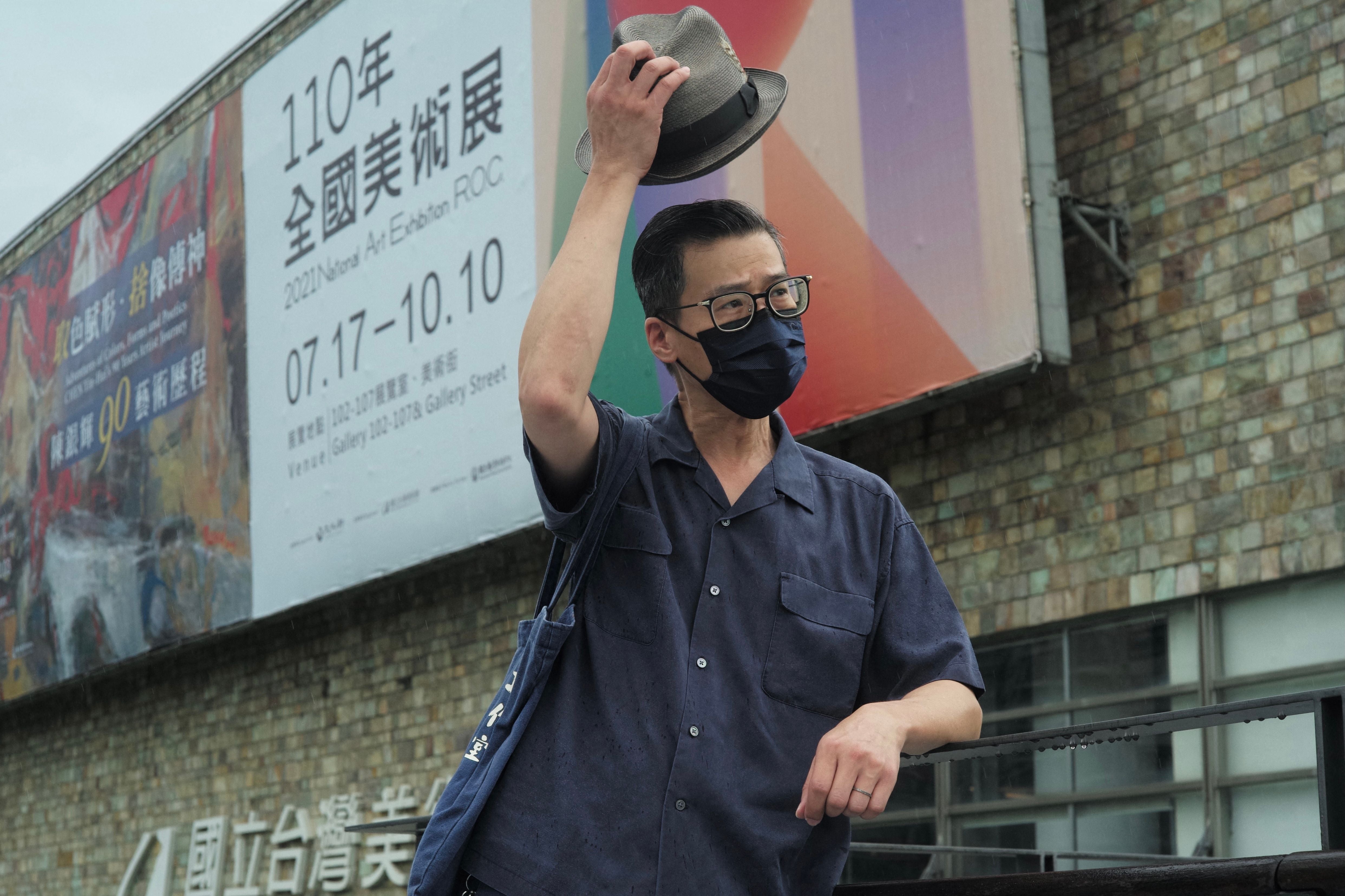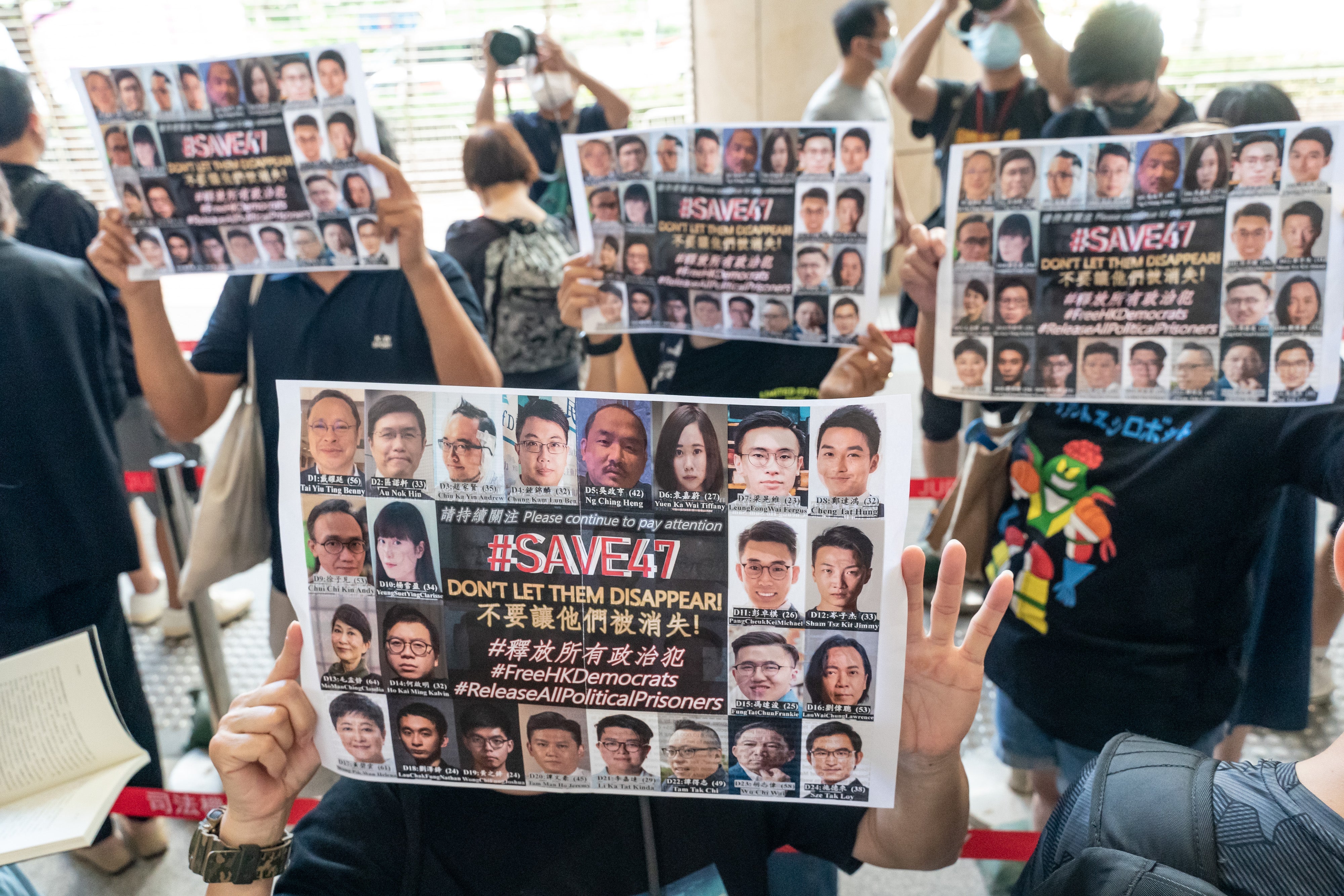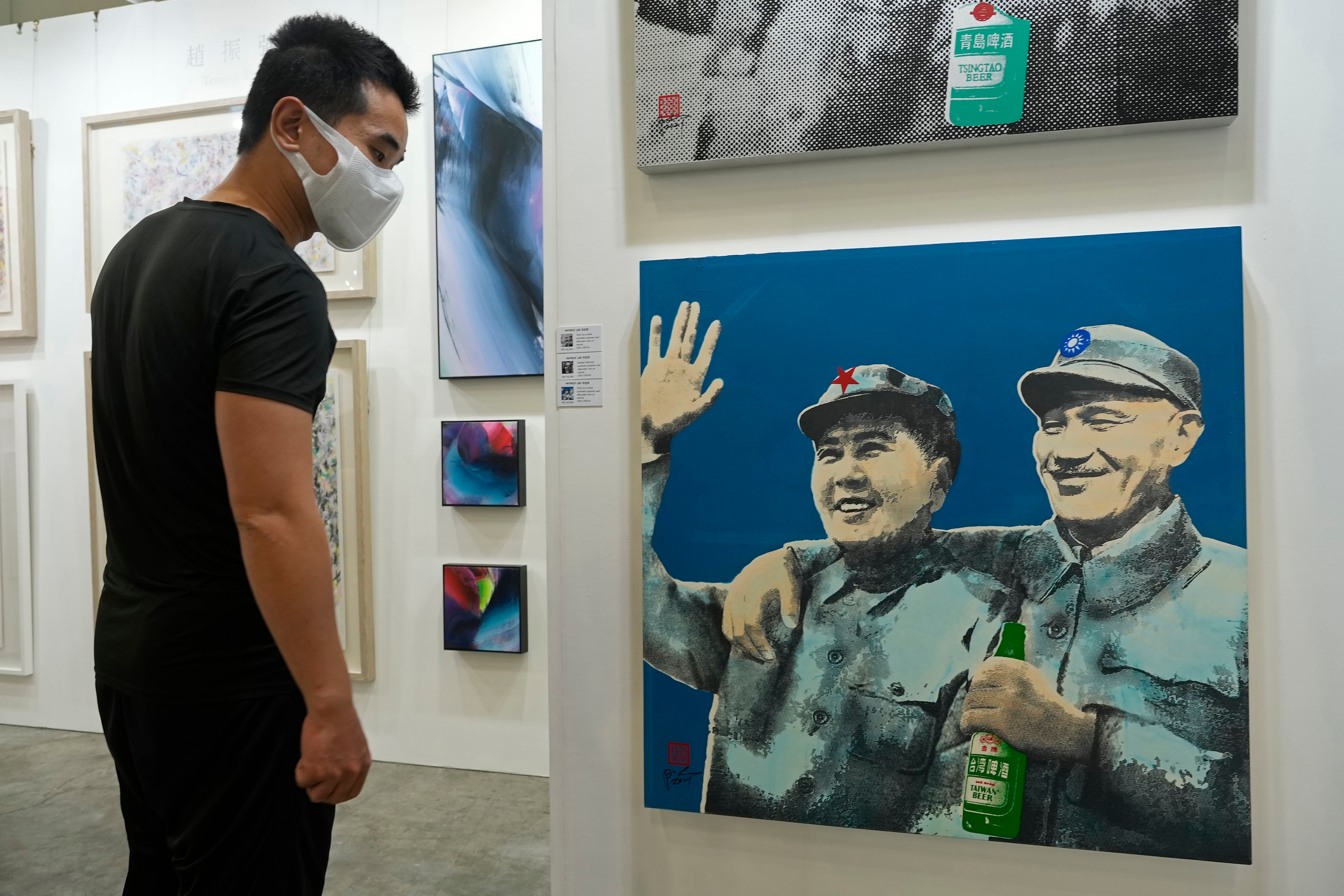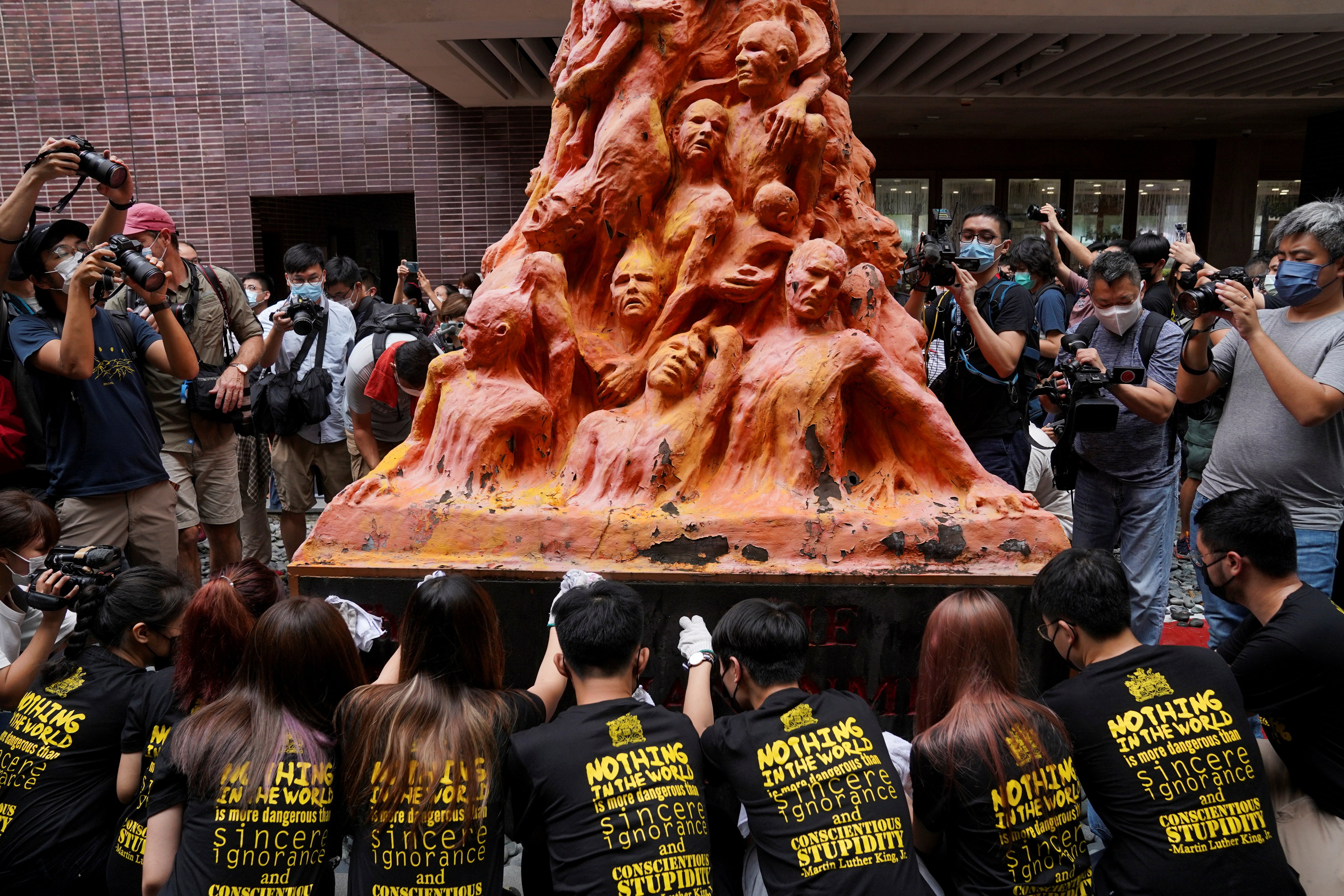‘Public spaces are no longer safe’: the Hong Kong artists fleeing to Taiwan to build new lives
As the Hong Kong government continues to crack down on different sectors of civil society using its National Security Law, some journalists and artists have chosen to flee to Taiwan to continue their resistance, writes William Yang


Nilk Wu could still recall the day when a friend called and urged him to leave Hong Kong. The call came after the co-founder of his media outlet, DB Channel, was arrested alongside 46 other pro-democracy political figures. They were charged with conspiring to commit subversion for participating in a primary held by the pro-democracy camp last July.
“The trial of the 47 pro-democracy figures was a wake-up call for me, because I finally realised how terrifying things can be under the National Security Law NSL,” said Wu.
Since its introduction in July last year, the National Security Law (NSL) has frequently been used to quash dissent and freedom of speech.
“One of the defendants, Gwenyth Ho, used to be a journalist and she delivered a solemn speech during the trial. It made me wonder if I could act the same way if I were arrested under the NSL for my reporting. Then I realised I couldn’t do the same because I still cared about the impact of my potential arrest on my family members,” he added.

Then one day in March, Wu got a phone call from his friend, urging him to leave Hong Kong as they believed the police could be going after him soon. “At around 5 or 6pm on that day, another friend called me and said he could buy the ticket for me to leave the city,” he told The Independent. “I decided to leave the city on the same night, and I got on a flight to Taiwan the next day. It took me only 18 hours to make up my mind.”
In fact, prior to the trial of the 47 activists, Wu had been targeted by police in Hong Kong and his relatives abroad even received phone calls from unknown individuals, asking if they knew Wu. A few months after he left Hong Kong, Wu learned that he won the merit in tertiary student writing at the 2021 Human Rights Press Award, the same day that Wu revealed that he had fled to Taiwan.
“I chose to come to Taiwan because there are already too many Hong Kongers in the UK, so the space for me to elaborate will be limited,” he said. “On top of that, since I also have a Taiwanese nationality, I thought it might be easier for me to continue my work about Hong Kong from Taiwan.”
‘New era of resistance’ in Hong Kong
Wu isn’t the only Hong Konger who has chosen to leave for Taiwan over the last few months. Kacey Wong, a prominent political and performance artist from Hong Kong, came to Taiwan in July after realising that the era of relying on large-scale marches and satirical political art to criticise the government is over.
“The NSL destroyed the judiciary system in Hong Kong and the city is now venturing into the no law, no order state,” he said. “Instead of pressing for the previous success of million-people marches on the street and getting international awareness, the great work from that period is already gone. I think now Hong Kong is heading towards a new era of resistance.”

Just like Wu, Wong said the moment that made him realise that he needed to leave Hong Kong was when dozens of Hong Kong’s pro-democracy activists, politicians and public figures were arrested under the NSL at the beginning of the year. In March, he was named alongside other artists and organisations that are connected to the Arts Development Council for using Hong Kong government’s money to fund anti-government entities and potential violators of the NSL.
Soon after that, Wong decided that it was time for him to leave the city. “Right after I decided to leave Hong Kong, I suddenly felt that everything was made of ashes, as if they were going to vanish and be blown away by the wind in a second,” he told The Independent.
“That was quite a depressing time. After a month or so, my logic came back and I realised the situation in Hong Kong wasn’t as bad as I had imagined. It was my mind playing tricks on me,” he added.
By moving the base to a safer place like Taiwan, I can and will continue my resistance away from the threat and I can continue to sustain the cultural resistance
Wong said the reason he chose to move to Taiwan is because he thinks he can keep growing and learning from the island that China deems as part of its territory. He says Taiwan allows him to have the freedom of artistic expression while being able to sustain the cultural resistance in Hong Kong.
“By moving the base to a safer place like Taiwan, I can and will continue my resistance away from the threat and I can continue to sustain the cultural resistance,” he said.

But for those who choose to stay in Hong Kong, Wong thinks it’s necessary for them to go underground in order to sustain the resistance, especially in the art sector. “In the art sector, it might be showing their critical works at home exhibitions rather than in public spaces,” Wong said.
“We need to admit that public spaces are no longer safe no matter how mild the artists might think their works are. There is no way anyone can avoid the unclear red line drawn by the NSL in every sector of society. Secrecy and going underground is the way to go for the future of Hong Kong’s artistic resistance,” he added.
Challenging environment for local journalists
While journalists or artists who choose to stay in Hong Kong are facing ever-greater risks under the ongoing crackdown in the name of national security, Wu thinks there is no longer space for local media in Hong Kong to cover sensitive topics like before.
It will be very difficult for Hong Kong journalists to try to work on sensitive topics as freelancers, because they will no longer have the protection that comes with mainstream media outlets
“Even if journalists want to work on certain topics, the pitches could still be turned down by the top management,” he told The Independent. “It will be very difficult for Hong Kong journalists to try to work on sensitive topics as freelancers, because they will no longer have the protection that comes with mainstream media outlets.”
Wu says he has a lot of respect for journalists who decide to stay in Hong Kong, because he thinks they are witnessing the emergence of a new era. “We need to have some journalists who choose to witness this moment in Hong Kong, and even if they can no longer write about certain topics now, they might still be able to write about it in the future,” he said.
“If those topics are newsworthy, they can still be newsworthy 50 years from now. While there may not be the space for them to write about these topics, it doesn’t mean they won’t have the space to write about the topics in the future,” he added.
Join our commenting forum
Join thought-provoking conversations, follow other Independent readers and see their replies
Comments
Bookmark popover
Removed from bookmarks